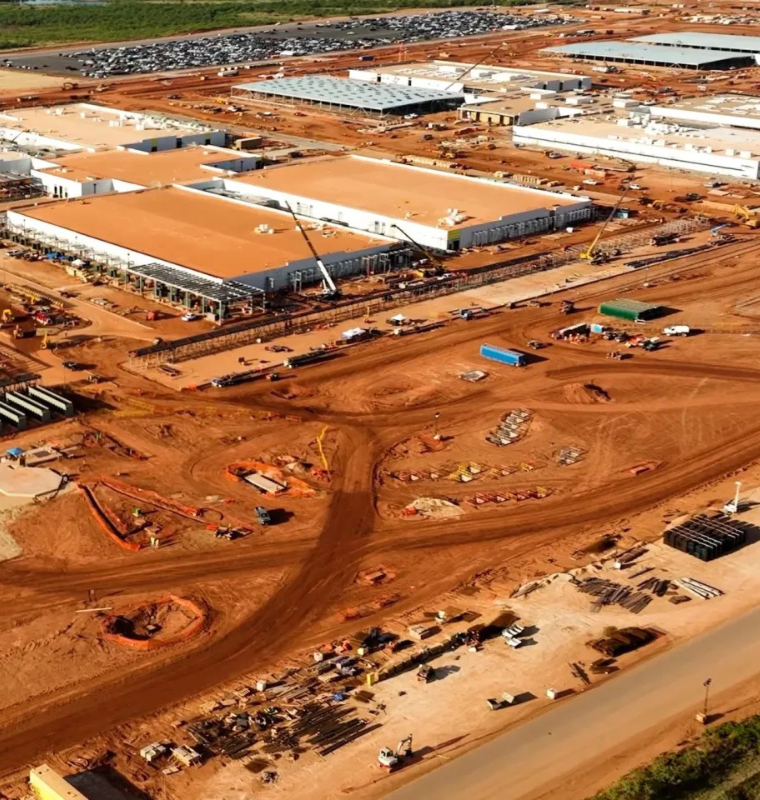U.S. Tightens Chip Export Rules, Stripping TSMC, Samsung, and SK Hynix of China Trade Privileges
U.S. Tightens Chip Export Rules, Stripping TSMC, Samsung, and SK Hynix of China Trade Privileges
By
David Goldfarb
Last updated:
September 4, 2025
First Published:
September 4, 2025

A 300mm wafer on display at the booth of Taiwan Semiconductor Manufacturing Company during the 2023 World Semiconductor Conference at Nanjing International Expo Center on July 19, 2023, in Nanjing, China. | Vcg | Visual China Group | Getty Images
Washington Shifts Its Semiconductor Strategy
The U.S. government has revoked a key trade exemption that once allowed major chipmakers to ship advanced manufacturing tools to their China-based plants with minimal red tape. Taiwan Semiconductor Manufacturing Co. (TSMC), South Korea’s SK Hynix, and Samsung Electronics are losing their validated end user (VEU) status, a privilege that expires on December 31.
This change means future exports of U.S.-origin semiconductor tools to facilities in Nanjing and other Chinese sites will now require individual licenses. The decision highlights Washington’s intent to prevent Beijing from advancing its domestic semiconductor capabilities while tightening U.S. leverage over global chip supply chains.
Impact on TSMC and South Korean Chipmakers
TSMC operates two fabrication plants in China, one in Shanghai and a more advanced facility in Nanjing. While the Nanjing plant accounts for less than 3% of TSMC’s global revenue, the shift underscores rising operational uncertainty for companies balancing Chinese operations with U.S. regulatory oversight.
South Korean giants Samsung and SK Hynix, which both maintain large memory chip facilities in China, also face new hurdles. Their VEU removal limits upgrades and capacity expansion, even as existing operations are allowed to continue under case-by-case export license approvals.
Shares of SK Hynix and Samsung dropped following the announcement, reflecting investor unease over tighter U.S. restrictions. TSMC’s stock, however, remained largely unaffected, partly due to the smaller revenue contribution from its Chinese fabs.
A Broader Crackdown on China’s Chip Ambitions
The Bureau of Industry and Security described the move as closing a “Biden-era loophole,” signaling that Washington is doubling down on export controls for chipmaking technology. While the U.S. has recently eased some restrictions on artificial intelligence chips from companies like Nvidia and AMD, the rollback of VEU privileges suggests that memory and foundry technologies remain firmly in Washington’s crosshairs.
Analysts argue that this reflects a broader U.S. objective: limiting China’s ability to scale its semiconductor ecosystem, develop domestic expertise, and expand its global market share in advanced chip production.
Strategic Realignment of Supply Chains
Beyond restrictions, the U.S. is simultaneously working to attract semiconductor investment back to its own shores. TSMC, SK Hynix, and Samsung have each announced new projects in the U.S., from Arizona to Texas, supported by incentives under the CHIPS and Science Act.
The policy push is reshaping the global chip industry, forcing major players to diversify production footprints and balance geopolitical risks. While the immediate revenue impact for TSMC may be limited, South Korean memory manufacturers face tougher choices, as China remains a critical hub for their production lines.
What Comes Next
As semiconductor competition intensifies, Washington’s move underscores its determination to keep China’s chipmaking ambitions in check while consolidating U.S. influence over global supply chains. For companies like TSMC, Samsung, and SK Hynix, the next phase will hinge on their ability to adapt production strategies, secure export approvals, and invest in alternative markets.
With the U.S. showing no signs of easing its stance, the semiconductor industry finds itself navigating a new era of policy-driven constraints, where strategic decisions will increasingly be shaped by geopolitics as much as by technology.
Popular articles
Subscribe to unlock premium content
Why Consumers Buy Limited-Edition Fashion and Beauty Products

How K-Beauty Changed the Global Skincare Industry and Consumer Expectations

How Streetwear Became a Billion-Dollar Industry From Niche to Mainstream

Why Consumers Buy Limited-Edition Fashion and Beauty Products

How K-Beauty Changed the Global Skincare Industry and Consumer Expectations

Why Consumers Buy Limited-Edition Fashion and Beauty Products









